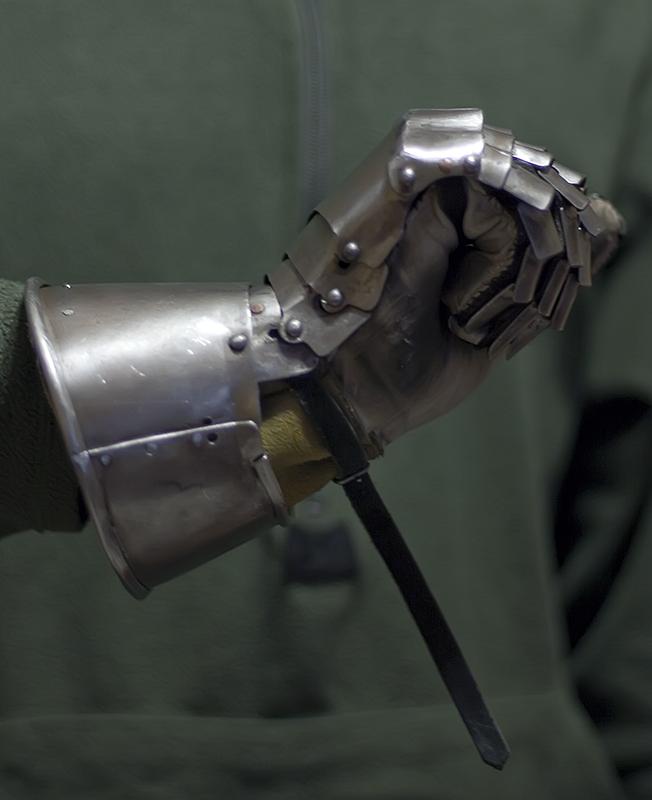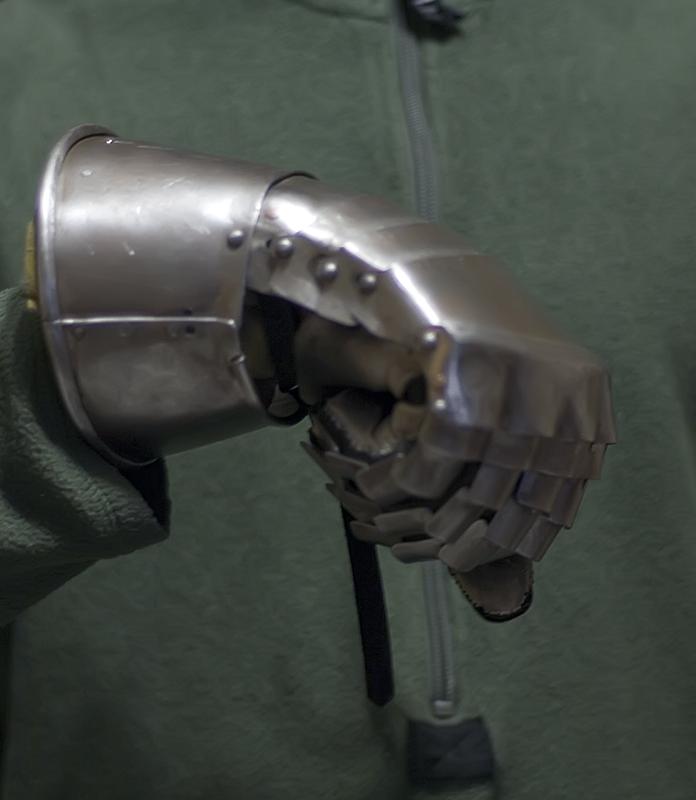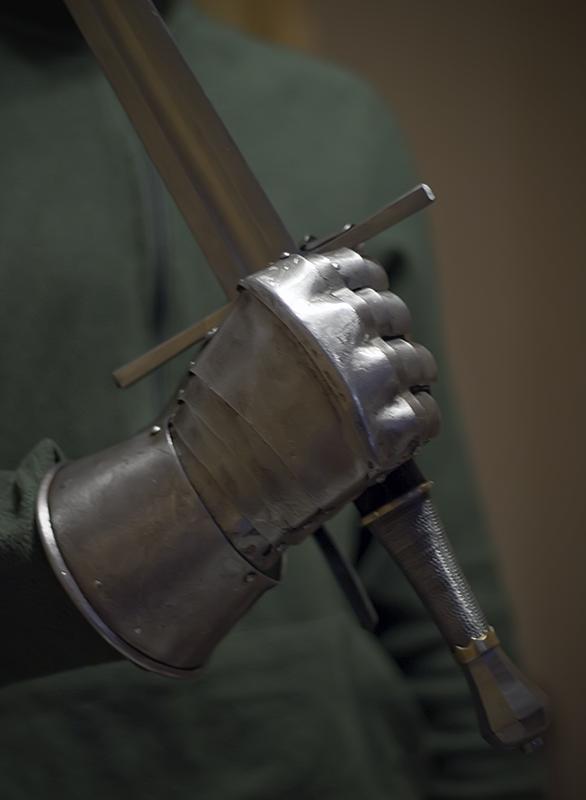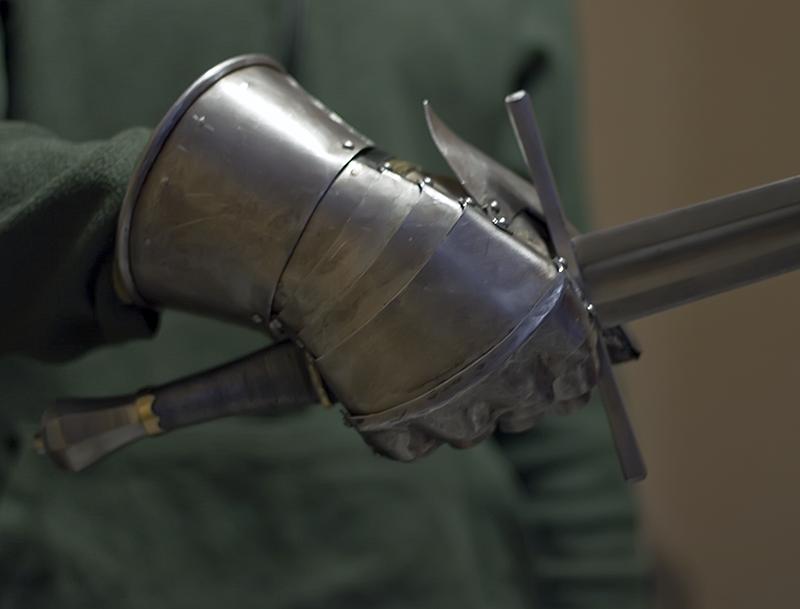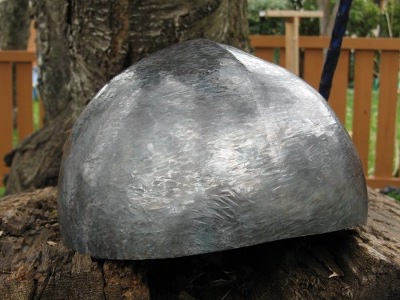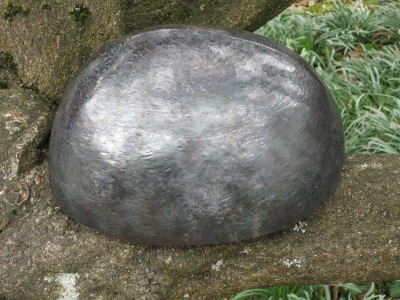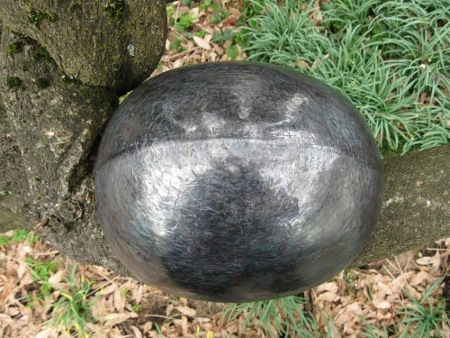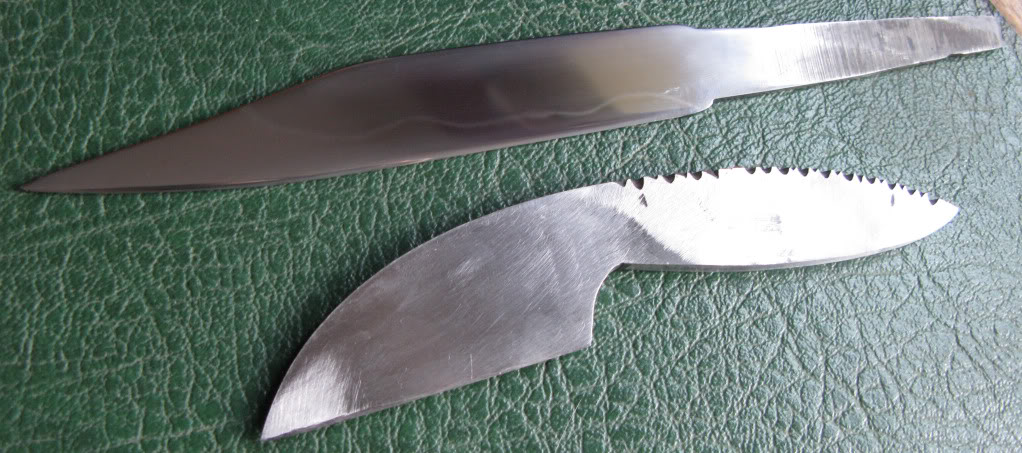Some more blades, this time entirely self-made. Cutlass and cut-and-thrust sword are sharp, messer is a blunt. Unfortunately neither of these can be called very good since
- cut-and-thrust has no
distal taper. While it is light, has a good balance and can deliver a pretty nasty cut, it would be much better if the blade was thinner and wider at the point. Or, if it had a longer blade, it could become a good rapier. Unfortunately my possibilities were limited by the size and shape of steel I had (this blade was made by
stock removal).
- cutlass has too little distal taper and therefore is rather heavy for its size. The blade was also made by stock removal.
- messer is point-heavy and overall weight of around 1.2 kg is probably too much for such weapon. But it was intended to be that way from the very beginning because I needed a relatively short blade that could deliver a powerful cut to use as a side arm in reenactment events when my primary weapon is something two-handed. All metal parts were forged.
 Attachment: 30.21 KB
Attachment: 30.21 KB
[ Download ]
 Attachment: 34.27 KB
Attachment: 34.27 KB
[ Download ]
